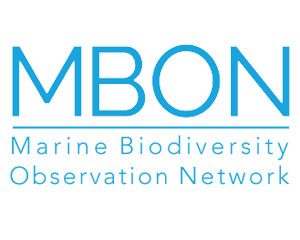Measurements of the status and trends of key indicators for the ocean and marine life are required to inform policy and management in the context of growing human uses of marine resources, coastal development, and climate change. Two synergistic efforts identify specific priority variables for monitoring life in the sea: the Essential Ocean Variables (EOVs) through the Global Ocean Observing System (GOOS), and the Essential Biodiversity Variables (EBVs) from the Group on Earth Observations Biodiversity Observation Network (GEO BON).

A paper published in 2018 entitled “Advancing Marine Biological Observations and Data Requirements of the Complementary Essential Ocean Variables (EOVs) and Essential Biodiversity Variables (EBVs) compares the two types of essential variables (see Frontiers in Marine Science, 27 June 2018 | https://doi.org/10.3389/fmars.2018.00211)
Convergence and agreement between these two efforts are required to streamline existing and new marine observation programs. The Marine Biodiversity Observation Network (MBON), a thematic component of GEO BON, is collaborating with the Intergovernmental Oceanographic Commission (IOC and its Global Ocean Observing System/GOOS, the Ocean Biogeographic Information System/OBIS, the Ocean Best Practices System/OBPS, and the Ocean Teacher Global Academy/OTGA), GEO Blue Planet, the Global Biodiversity Information Facility (GBIF), Asia-Pacific MBON, the Integrated Marine Biosphere Research (IMBeR), and other groups to identify and document best practices related to EOVs and marine EBVs.
An important next step is the organization of workshops to design implementation plans for the concurrent measurement of specific biological, physical, and biogeochemical EOVs and EBVs. The goal is to integrate biological and biodiversity observations into ocean observing systems and networks with outputs relevant to societal need.
We look for collaboration across GEO BON to accomplish this goal with other Working Groups and Task Forces, and other groups interested in establishing operational observations of life in the sea. This will be an important contribution to the UN Decade of Ocean Science for Sustainable Development, the Intergovernmental Science-Policy Platform on Biodiversity and Ecosystem Services (IPBES) the post-2020 efforts of the Convention on Biological Diversity, and many other national and international initiatives.
This article was originally released in Good, Better, Best, a newsletter from the Ocean Best Practice community.
(Frank Muller-Karger is a member of the IOC’s Ocean Best Practices Working Group, and co-chair of the GEO BON MBON with co-chairs Isabel Sousa-Pinto and Mark Costello).
